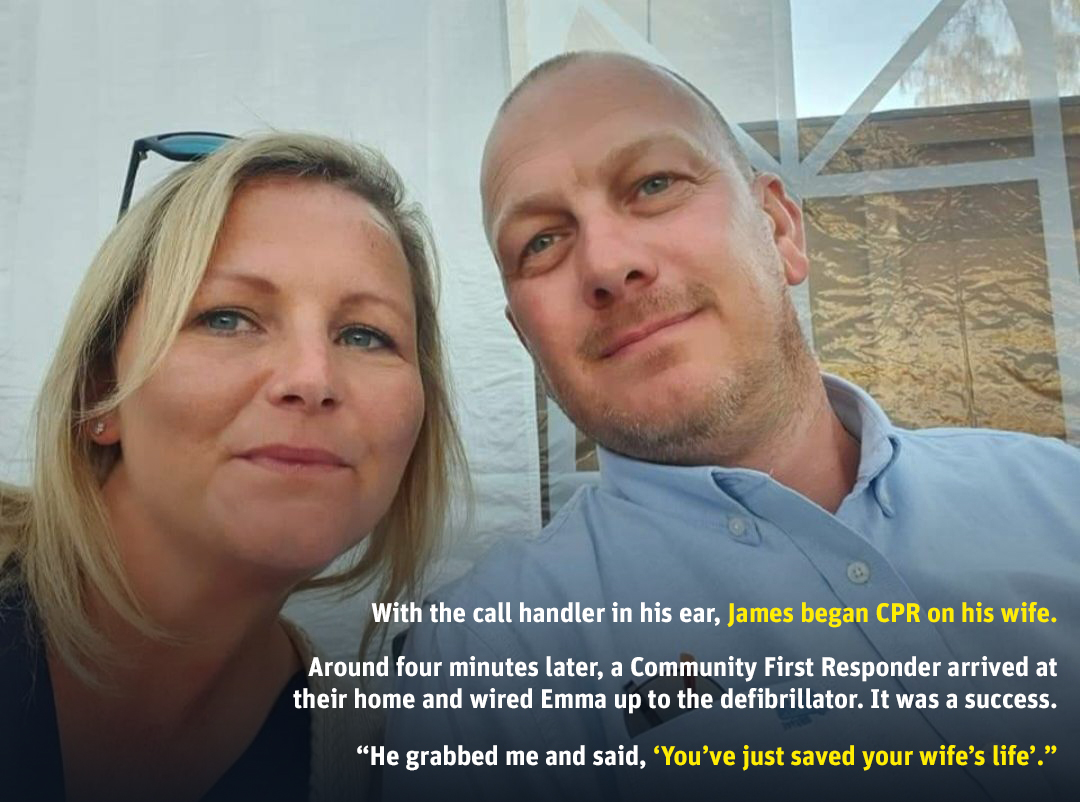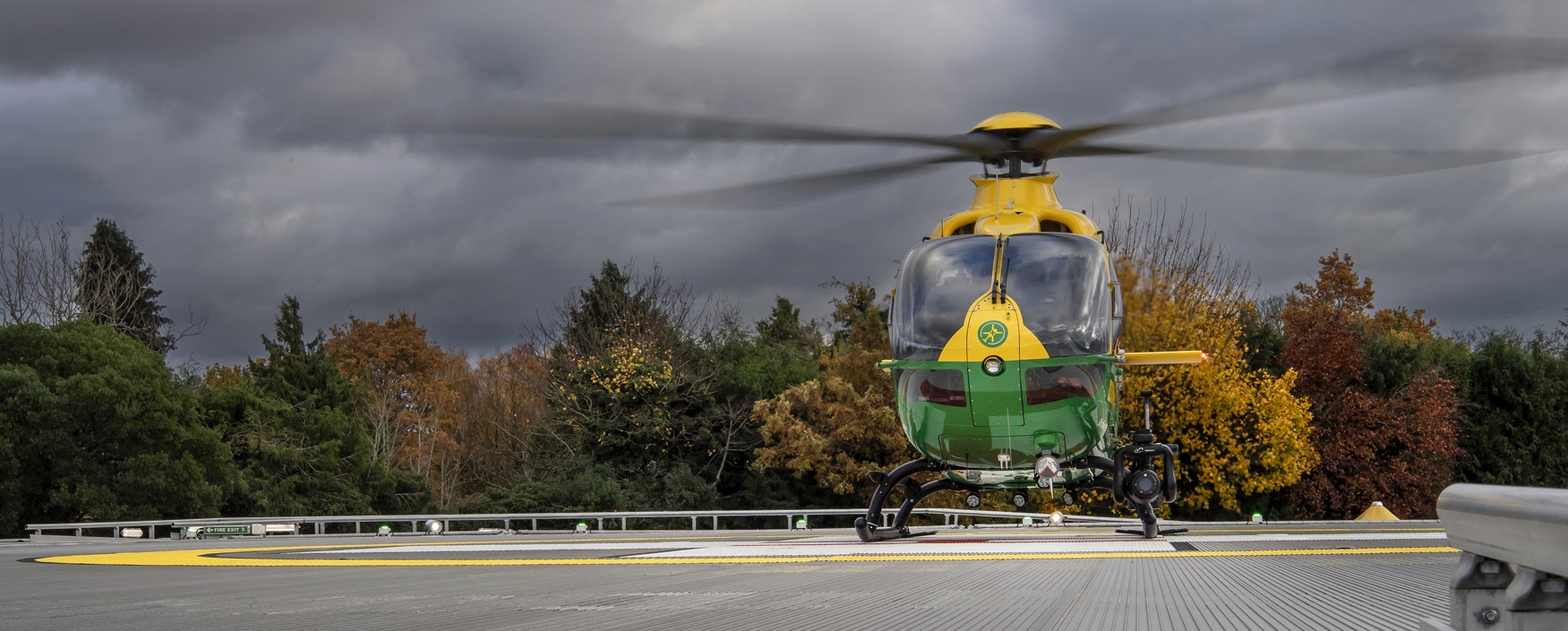Do you know how to perform cardiopulmonary resuscitation (CPR)? Do you know why CPR is so important? For Restart a Heart Day, HEMS Paramedic Lucy Cameron details the impact you can have by learning CPR.
As a helicopter emergency medical service team, we see the most unwell and badly injured patients across Hampshire and the Isle of Wight. We work hard to deliver critical care so that these patients have a better chance of getting home to their families, but in the case of a cardiac arrest, it’s not us that can make the biggest difference to that outcome – it’s you.
Last year 34% of the patients we attend are in cardiac arrest – our most frequent call-out. This means they have collapsed and their heart isn’t beating. The only chance they have at survival, let alone recovery to getting home, is by getting their heart started. Quickly.

Why should you care?
There are approximately 30,000 out-of-hospital cardiac arrests in the UK each year, and around 80% of those occur at home – so it’s more likely you may have to resuscitate someone you know, rather than a stranger.
The current survival rate is fewer than 1 in 10 – but that chance is significantly higher if CPR is performed immediately after the cardiac arrest happens.
Every minute they go without CPR, their chances of survival decrease by 10%. If that isn’t the motivation needed to learn CPR, I don’t know what is.
In the UK, we have skilled ambulance services; and thanks to incredible support from people like you, our Critical Care Teams can deliver advanced drugs and manage the patient’s airway and breathing, trying to limit damage done to the brain and other vital organs. But without people who are willing to do CPR in the event of a cardiac arrest, everything we do pales into insignificance.
Watch our crew demonstrate the equipment they use when responding to a cardiac arrest.
Why doesn’t everyone do it?
None of us like to think about bad things happening to people we love but facing that discomfort for a few minutes is incomparable to the feeling of wishing you had known what to do.
Every week we see the difference between the person who had someone nearby who was willing to give them a chance and the person who didn’t. I can attend a patient who has had a cardiac arrest, immediate CPR and an automated external defibrillator (AED) applied – sometimes they are waking up in hospital later that day.
Later that shift I can attend someone, also in cardiac arrest, but nobody around them started CPR. In the time it takes for the ambulance to arrive, even if it’s as little as eight minutes, that person now has around a 10% chance of survival.
Sadly, even immediate CPR is no guarantee of survival – sometimes whatever has caused the cardiac arrest is too mammoth to overcome, but in every case, early and effective CPR gives a person the best chance at surviving.
Learn the ropes
The BHF has a free, 15-minute online training session. Using the camera on your phone, it gives you feedback on CPR practiced at home, so you know that you can deliver effective CPR.
In a perfect world, no one reading this will have to deal with someone in cardiac arrest – but the reality is, someone will. It might be a stranger, someone you know or someone you love dearly. By learning CPR, you could greatly improve their chance of survival.
We will be there for every patient we can, but in this situation, you are the person that can make the biggest difference.
Help to restart a heart today, check out our tips, myths and misconceptions blog for a deep dive into performing CPR.



 Donate
Donate







